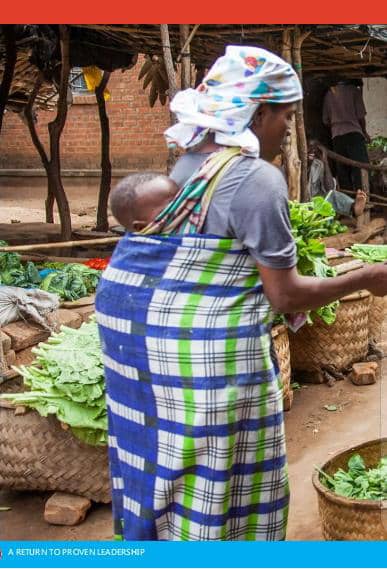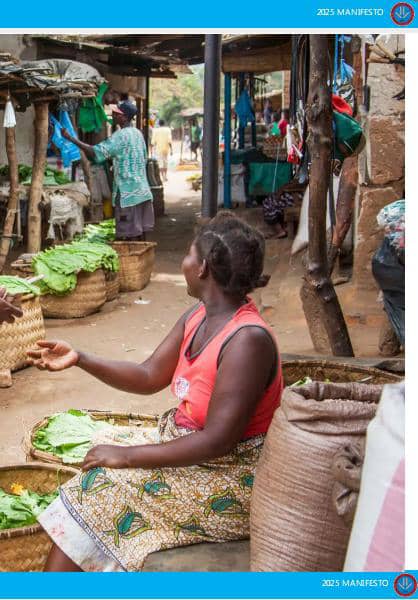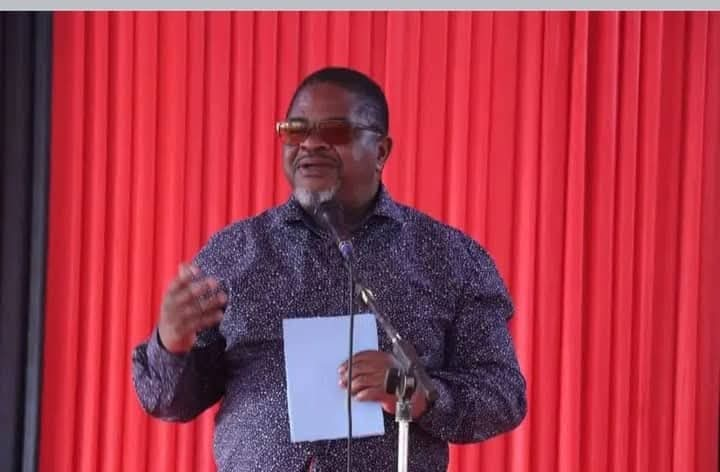By Burnett Munthali | Malawi Freedom Network
The DPP manifesto highlights a recognition of Malawi’s current fiscal challenges, noting a historical over-reliance on short-term domestic debt instruments such as Treasury bills and Ways and Means advances from the Reserve Bank to finance government deficits and manage cash flow.
The party asserts that it will adopt a different approach to debt management, seeking to ensure sustainability and fiscal prudence.
Specifically, the DPP promises to adhere strictly to the annual borrowing plan in alignment with the Medium-Term Debt Strategy.

It will negotiate and restructure existing debts to ensure sustainable settlement and fiscal stability.
The manifesto commits to prioritizing concessional loans over commercial borrowing, highlighting a preference for lower-cost financing mechanisms.
Furthermore, the DPP pledges not to enter into any contractual obligations for new external public and publicly guaranteed non-concessional debt for at least two years until a comprehensive review is conducted.
Borrowing, the party asserts, will be strictly for productive purposes and not for consumption, emphasizing investments that generate economic returns rather than short-term spending.
A new Medium-Term Debt Strategy covering 2025 to 2030 is also planned to strengthen fiscal planning and oversight.
The DPP sets an ambitious goal to attain a positive primary balance of the central government of at least MK 270 billion, equivalent to 1 percent of GDP, by the end of the first year in 2026.
In terms of the resource envelope, the manifesto emphasizes living within means and avoiding excessive borrowing that could impose burdens on future generations.
The DPP outlines that its manifesto will be based on revenues that are realistically within the control of Malawians, emphasizing domestic resource mobilization.
Cumulative revenue for the five-year period is projected at MK 28.5 trillion, as assumed under the existing Revenue Mobilization Strategy.
Domestic revenue is expected to grow by 1.5 percent of GDP annually, starting with the 2025 revenue estimates.
Grants, however, are projected to slow due to donor fatigue and broader international political economy dynamics.
By 2030, the manifesto anticipates that the domestic primary balance will be firmly positive, reflecting prudent fiscal management.
The DPP intends to anchor investments in key growth-enabling projects after stabilizing the economy, using MK 6.35 trillion of its own funds saved through fiscal consolidation and stabilization measures.
These funds are planned to be allocated into an optimal capital structure alongside support from development partners and concessional loans.
Borrowing levels will be carefully managed to avoid debt distress and ensure that the government can service its obligations without resorting to additional borrowing.
The manifesto commits to keeping the Domestic Primary Balance above 1 percent from 2028 to 2030, signaling a long-term focus on fiscal discipline.
Priority investments will target power generation, mining, and economic infrastructure including railways, roads, industrial parks, export processing zones, airports, inland water transport, and improved access to the sea.
Agricultural productivity will also be emphasized, with commercialization of crops such as cotton, soybeans, wheat, and maize for national food security and value addition.
The manifesto also highlights structured import substitution, production of exportable goods and services where Malawi has a regional comparative advantage, and tourism development.
In addition, the DPP plans to leverage financial markets, including pension and insurance funds, to negotiate joint financing structures that support growth-enabling projects.
This approach reflects a desire to mobilize domestic capital for sustainable investment while creating partnerships that benefit both the government and the private sector.
Concluding Analysis
The DPP manifesto presents a comprehensive fiscal and economic strategy, combining disciplined debt management with targeted investment in growth sectors.
Its emphasis on concessional borrowing, domestic resource mobilization, and productive use of debt underscores a commitment to fiscal sustainability and long-term economic stability.
By prioritizing strategic sectors such as infrastructure, agriculture, power, and tourism, the manifesto reflects an ambition to transform Malawi’s economy through value addition, regional competitiveness, and job creation.
Leveraging domestic financial markets and ensuring that borrowing remains productive signals a pragmatic approach to financing development without compromising fiscal health.
Overall, the DPP manifesto positions the party as focused on responsible governance, sustainable development, and the creation of a resilient economic foundation that benefits both current and future generations.




